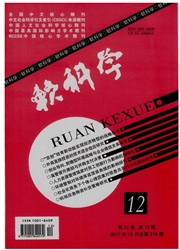

 中文摘要:
中文摘要:
研究突发事件风险在定价推动型供应链中传递的效应和规律。以博弈论思想为指导,分析了突发事件风险在定价推动型供应链中传递的过程,建立了相应的风险传递模型,计算了供应链双方利润对成本的风险弹性系数。研究表明:需求敏感系数越小,市场需求总容量越大,供应链双方面临的定价风险就越小;扩大需求总量和减小需求敏感系数有利于减少供应链利润对成本的风险反应,把握消费者的需求倾向对于削弱成本风险具有重要的意义;对于有库存的情况下,生产商通过巧妙的定价策略将成本变动的风险更多地转移到零售商利润的变动上,一个合理优良的定价策略对于定价风险分担具有重要的作用。
 英文摘要:
英文摘要:
To study the mechanism of emergency risk transmission in price-driven supply chain, the risk transmission process is analyzed, and the model is built with game theory. The demand sensitivity coefficient of profit to cost is calcu- lated. Studies show that: the pricing risks are smaller when the demand sensitivity coefficient is smaller, but the total market demand capacity is bigger; expanding total demand and reducing the demand sensitivity coefficient help reduce the fluctuation of profit; grasping the needs of consumers tends to weaken the cost risk. In case of inventories, manufac- turers can transfer risk to retailer through elaborate pricing strategy, so a reasonable pricing strategy will play an impor- tant role in risk-sharing.
 同期刊论文项目
同期刊论文项目
 同项目期刊论文
同项目期刊论文
 期刊信息
期刊信息
